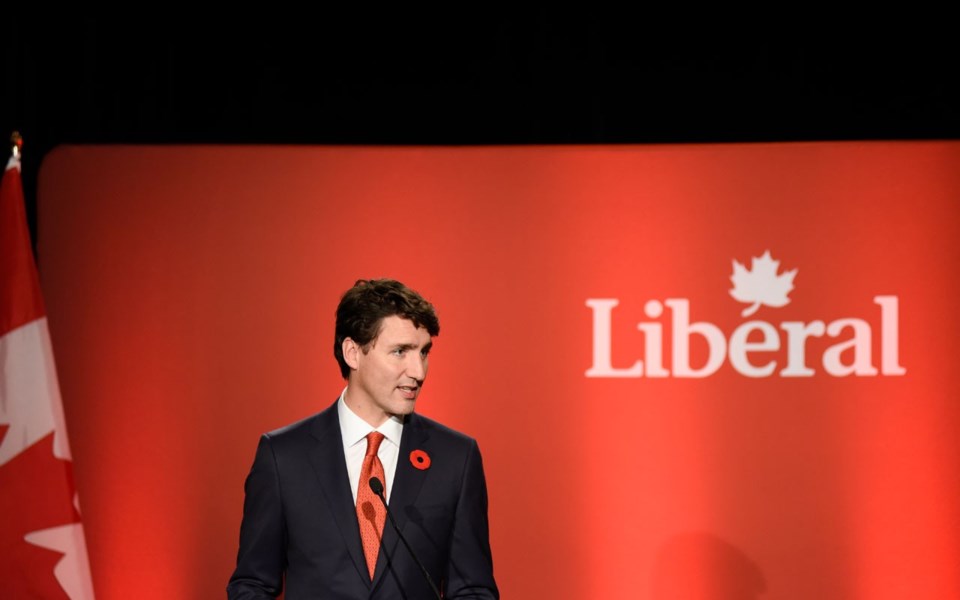Canada's new Liberal minority government is "by and large" good for tourism, according to the Tourism Industry Association of BC (TIABC), though it remains to be seen where funding levels will fall.
The new Federal Tourism Growth Strategy released last spring included some "pretty aggressive targets," said TIABC CEO Walt Judas, pointing to the stated goal of adding 54,000 new jobs and an additional 25 per cent in revenue (to $128 billion) by 2025.
"I would like to think that this tourism strategy will carry forward," Judas said.
"I guess the real test will be how much money the federal government is willing to put in the budget toward tourism marketing and other initiatives."
It's important to "at least retain the $100 million" the federal government puts towards tourism today, "but ideally we'd like to see it grow to $135 million to be on par with the likes of Australia and some of the others in our competitive set," Judas said.
The single biggest issue facing the industry today is the same as it has been for years: labour.
"In B.C. alone, by 2028 we'll need 110,000 new workers to replace those that are retiring and for many other reasons," Judas said, adding that there are "a number of steps" Canada's new government can take to address the issue, like considering a seasonal tourism workers program, or streamlining the permanent residency process for lower-skilled workers.
"We need to create an easier path for people who want to live and work here, and no matter the skill level—look at it sector by sector and recognize the needs within tourism, recognize the needs in the other sectors, and adjust accordingly," he said.
"But don't make it so difficult for people who want to live and work and be a part of the tourism industry to have that opportunity over the long term."
Whistler's new representative in the House of Commons is 33-year-old Patrick Weiler, a first-time Liberal MP and political rookie.
"It makes it less likely that he'll find a seat at the senior tables, but then again, given the divisions in the country between younger and older Canadians, they may present some opportunities as well," said Stewart Prest, lecturer in political science at Simon Fraser University.
"Having a younger voice at the table can provide a different kind of perspective, and he'll have to learn on the job and I expect over time he'll grow into the role and find out what he wants to do with the job. But yeah, it would be a different kind of representation (than former MP Pamela Goldsmith-Jones)."
B.C.'s election results constitute "mostly more of the same," Prest said, with the Liberals bending but not breaking in Metro Vancouver, a small Green presence on the island, the NDP holding on to some seats and the Conservatives having a lock on the Interior.
In some ways, the province captures Canada's current political divide in miniature, he added, pointing to the differing ideologies of the environmentally conscious coast and the conservative-minded Interior.
Looking at the B.C. example can also give a sense of how politics might evolve federally, Prest added.
"For instance, we had a BC Liberal government that was very proactive in terms of encouraging resource extraction, but also embraced a carbon tax—so finding a way to reconcile what, within the country, are two solitudes," he said.
"But there is evidence that with different kind of leadership on the right you can find a meeting point; you can have that conversation link up again."
What are Prest's predictions for Canada's new minority Parliament?
"It really depends on the tone that the prime minister sets," he said.
"His initial speech sounded like he had won a majority, which he clearly did not—it was quite a sharp rebuke, and so I think [he has] to not just speak more humble words but actually find compromise.
"If they're not able to do that it's going to be a fractious and confrontational Parliament, and we may find ourselves back at the ballot box sooner rather than later."
Whistler Mayor Jack Crompton said he's been impressed with Weiler, and intends to set up a meeting with him "at his earliest convenience."
"I'm looking forward to working with him," Crompton said.
"My hope is that he will represent the importance of tourism communities in Ottawa, that he'll represent the needs of his constituents, and I'm confident he will.
"I'm really interested to see how a minority government will govern in Canada."




